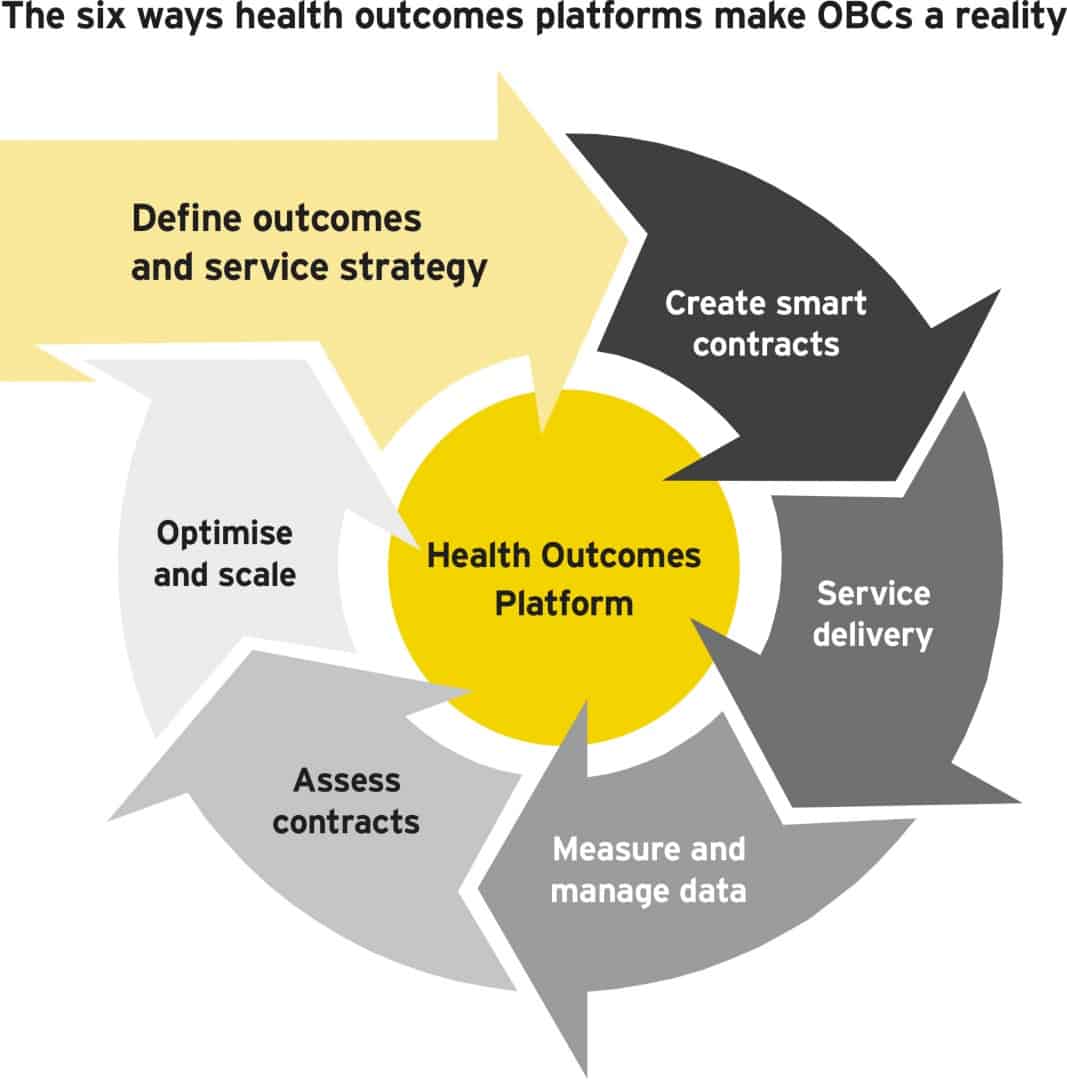
By Aaron Bean, EY, Life Sciences, UK & Ireland
The Fourth Industrial Revolution and its accompanying technological advances make it possible to connect, combine and share data in new ways, creating new business opportunities for the healthcare industry.
Stakeholders across the health ecosystem recognise the pressing need to move away from historic payment models based on product utilisation towards value-based models that reward improvements in health outcomes.
As healthcare costs have skyrocketed, governments, businesses and individuals are paying ever more to maintain the health of their populations, their workers and their families. Outcomes-based contracts (OBCs), which tie a product’s performance to its patient outcomes, are an important component in reducing healthcare spending trajectories to more sustainable levels while continuing to reward product makers for risky but important innovations. Without them, systematic pricing pressures are likely to further commoditise products – harmful not only for life sciences companies, but also for the creation of new innovations that can improve patient care.
While there has been some experimentation with OBCs recently, pervasive stakeholder concerns that they are too risky, too complex to design and measure, and too difficult to replicate across multiple parties have slowed their adoption. In the past, these concerns were warranted.
Today, however, three things make the environment different:
1. Exponential growth of health data, including from consumer devices and the expanding internet of medical things (IoMT)
2. Readily available computational power and data storage to manage data in secure, scalable and low-cost ways
3. Stakeholders’ growing willingness to work together to create new outcomes-based models.
It is now time to leverage new digital technologies that make it easier and safer to collect and share data to eliminate long- standing frictions associated with OBCs.
Industry platforms: the missing piece?
In other industries, platforms have changed the way we shop, bank and travel through simple, secure interfaces that connect disparate stakeholders. That kind of flexible, user-centric interface has been lacking in healthcare. However, platforms could unlock outcomes- based contracting at scale by streamlining their creation, management and assessment:
- Platforms provide a simple, transparent and comprehensive solution that helps users evaluate an OBC business case and negotiate and create compliant contracts
- Platforms simplify data integration and management, eliminating costly overheads while maintaining strong data governance and security
- Platforms that incorporate predictive analytics algorithms can de-risk OBCs by forecasting expected performance and creating consistent metrics for execution
- Platforms can accelerate the adoption of OBCs across multiple parties since there is little to no additional cost to add users.
Three design principles
In order to create a successful platform for OBCs, following these three design principles is essential:
- Transparency: to have confidence that outcomes have been correctly defined, measured and reported, all parties must have transparency and access to the latest data
- Security: because sensitive patient data underpins OBCs, it is essential that platforms manage data in ways that are fully compliant with evolving data privacy laws and use anonymised, aggregated data whenever possible
- Scalability: a common platform that is company-, product- and market- agnostic reduces the complexity and overall cost of managing OBCs.
Not every product will merit an OBC, so building the business case is essential. Steps that can make the difference between success and failure include: selecting the right stakeholder participants, defining the right outcomes and creating necessary support services to de-risk outcomes. Equally important is the formation of a binding contract that distributes risk evenly across all stakeholders.
Another crucial component is the management of the data used to demonstrate an improved health outcome. Application programme interfaces (APIs) that limit administrative burden and allow aggregation of longitudinal data from a range of sources will be key. A structured process for data governance ensures that the data is of the highest quality and that data access and use meet the specific needs of local markets based on evolving legislation.

Transparency may be the most important of any outcomes-based platform. To have faith in the results, participants need access to near real- time analytics to monitor, evaluate and predict what health outcomes are being achieved and their financial implications. As insights about a contract’s performance become available, this data can be used to adjust an OBC to improve its success and replicate it nationally and globally.
Enter EY’s Health Outcomes Platform
EY’s Health Outcomes Platform has been designed to help solve the issues outlined above, simplifying the process of managing and sharing data and providing the essential ingredients to manage and reduce the risk associated with OBCs. This is new territory for the healthcare industry. Finding the right path won’t be without effort or risk. By arming each party with the relevant information, we believe the Health Outcomes Platform provides transparency and fosters an environment of trust crucial to long-term value creation.
EY’s Global Life Sciences Sector brings together a worldwide network of nearly 17,000 sector-focused professionals to anticipate trends, identify their implications and help our clients create a competitive advantage. We can help you navigate your way forward and achieve sustainable success in the new health- outcomes-driven ecosystem. Visit ey.com/uk/lifesciences
The views reflected in this article are the views of the authors and do not necessarily reflect the views of the global EY organisation or its member firms.





